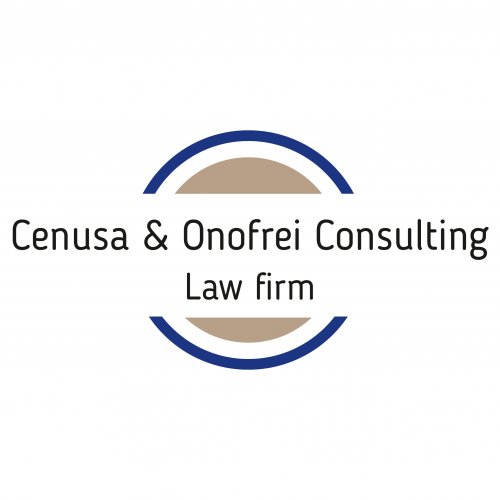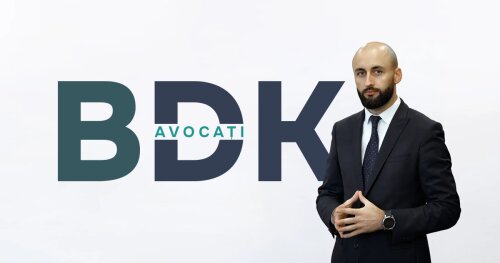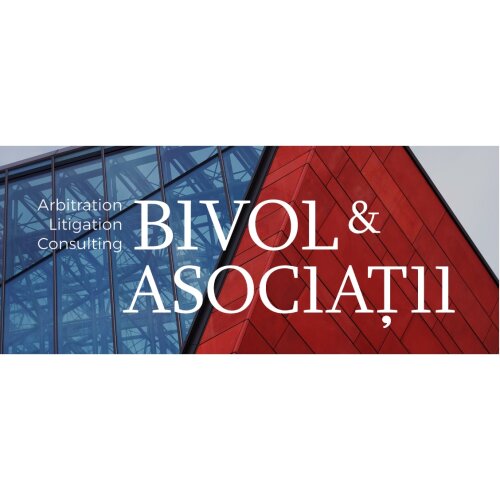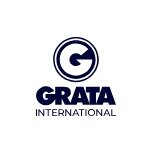Best Project Finance Lawyers in Republic of Moldova
Share your needs with us, get contacted by law firms.
Free. Takes 2 min.
Or refine your search by selecting a city:
List of the best lawyers in Republic of Moldova
About Project Finance Law in Republic of Moldova
Project finance in Republic of Moldova refers to the legal and financial structuring of large-scale investments, typically for infrastructure, energy, or public utility projects, based on the projected cash flows of a specific project rather than the general assets or creditworthiness of a sponsor. These arrangements are often complex, involving multiple parties, long-term contracts, security interests, and various compliance requirements under Moldovan law. The legal framework provides the basis for structuring, negotiating, and ensuring the enforceability of financing agreements, security packages, and risk allocation among stakeholders.
Why You May Need a Lawyer
There are several reasons why individuals or entities may require legal advice in the area of project finance in Republic of Moldova. Common situations include negotiating or drafting financing agreements, ensuring the legality of corporate structures, navigating government permits and concessions, and securing land or energy rights. Lawyers can also help identify and mitigate regulatory or contractual risks, advise on structuring the project to comply with Moldovan and international standards, and assist in dispute resolution if conflicts arise. Legal counsel is also often needed during due diligence, particularly for cross-border investments or involving state-owned enterprises.
Local Laws Overview
In Republic of Moldova, project finance is governed by a combination of the Civil Code, company law, banking and financial laws, public-private partnership (PPP) legislation, and sector-specific regulations such as those for energy, construction, and environmental protection. Key issues relevant to project finance include the ability to create and enforce security interests over project assets, the operation of special-purpose vehicles (SPVs), foreign exchange controls, and requirements for government permissions or guarantees. The Law on Public-Private Partnerships sets out the framework for collaboration between the public sector and private investors, while laws regulating mortgages, pledges, and insolvency dictate the rights and obligations of lenders and sponsors. Licensing and compliance with Moldovan regulations are crucial at every stage of the project.
Frequently Asked Questions
What is project finance and how does it work in Moldova?
Project finance in Moldova involves raising funds for a specific project, typically via a dedicated legal entity, with repayment primarily derived from the project's cash flow and assets, rather than the sponsor’s broader balance sheet. It is commonly used in infrastructure, energy, and public services.
Who can be a project sponsor or developer in Moldova?
Both local and foreign investors, including individuals, companies, and consortiums, can sponsor project finance initiatives in Moldova. They may collaborate with public authorities under PPP agreements where relevant.
What are the key legal documents involved in a project finance transaction?
Key documents include the project agreement, financing agreement, security documents (such as pledges or mortgages), shareholder agreements, government permits, and commercial or supply contracts.
How are risks allocated in project finance deals?
Risks are typically allocated through contractual arrangements. Common risks addressed are commercial, operational, financial, political, and legal risks. This is often managed through insurance, guarantees, and risk-sharing mechanisms.
Can foreign lenders and sponsors participate in Moldovan project finance?
Yes, the Moldovan legal framework generally allows for foreign involvement, subject to necessary approvals and compliance with currency control regulations and national security considerations.
What types of security can lenders obtain in Moldova?
Lenders can secure their interests through mortgages over land and buildings, pledges over movable assets, shares, bank accounts, and assignment of receivables or contractual rights.
What role do public-private partnerships play in Moldovan project finance?
PPPs are a common structure, enabling private sector involvement in public projects. The Law on PPPs outlines procedures for procurement, negotiation, execution, and monitoring of these arrangements.
Are there any tax incentives for project finance investments?
Depending on the sector and project, there may be incentives such as tax exemptions or reductions, especially for projects deemed to be of public interest. It is important to consult with a lawyer or tax adviser to determine eligibility.
What happens if a project financed in Moldova becomes insolvent?
If insolvency occurs, Moldovan law provides for specific rights and priorities for creditors, with security interests taking precedence as stipulated in the loan and security documentation, and in accordance with insolvency laws.
How can legal counsel assist with project finance transactions in Moldova?
Lawyers can assist in structuring deals, drafting and negotiating key agreements, performing due diligence, securing permits, advising on compliance, and representing stakeholders in disputes or enforcement actions.
Additional Resources
For those seeking more information or assistance in project finance in Moldova, the following resources are helpful:
- Ministry of Economy and Infrastructure of the Republic of Moldova: Handles investment and PPP matters, and issues relevant permits and guidelines. - National Agency for Energy Regulation: Regulates the energy sector and issues licenses for power projects. - Public Property Agency: Oversees the management and privatization of state assets, relevant for PPP and state-involved projects. - Moldovan Chamber of Commerce and Industry: Offers information and support for foreign and local investors. - Independent and international law firms with offices or affiliations in Moldova: Provide specialized project finance legal services.
Next Steps
If you are considering or involved in a project finance initiative in Republic of Moldova, your next steps should include:
- Seek a qualified Moldovan lawyer or law firm with experience in project finance and cross-border transactions. - Prepare all relevant project and company documentation for legal review. - Conduct preliminary due diligence, including regulatory and licensing checks. - Arrange consultations to discuss structuring options, risk allocation, compliance, and potential incentives. - Stay updated with any legal or regulatory changes that could affect your project.
Proper legal guidance is essential for navigating the complex environment of project finance in Moldova. Acting early to secure professional advice can greatly increase your chances of success and minimize legal and financial risks.
Lawzana helps you find the best lawyers and law firms in Republic of Moldova through a curated and pre-screened list of qualified legal professionals. Our platform offers rankings and detailed profiles of attorneys and law firms, allowing you to compare based on practice areas, including Project Finance, experience, and client feedback.
Each profile includes a description of the firm's areas of practice, client reviews, team members and partners, year of establishment, spoken languages, office locations, contact information, social media presence, and any published articles or resources. Most firms on our platform speak English and are experienced in both local and international legal matters.
Get a quote from top-rated law firms in Republic of Moldova — quickly, securely, and without unnecessary hassle.
Disclaimer:
The information provided on this page is for general informational purposes only and does not constitute legal advice. While we strive to ensure the accuracy and relevance of the content, legal information may change over time, and interpretations of the law can vary. You should always consult with a qualified legal professional for advice specific to your situation.
We disclaim all liability for actions taken or not taken based on the content of this page. If you believe any information is incorrect or outdated, please contact us, and we will review and update it where appropriate.
Browse project finance law firms by city in Republic of Moldova
Refine your search by selecting a city.

















